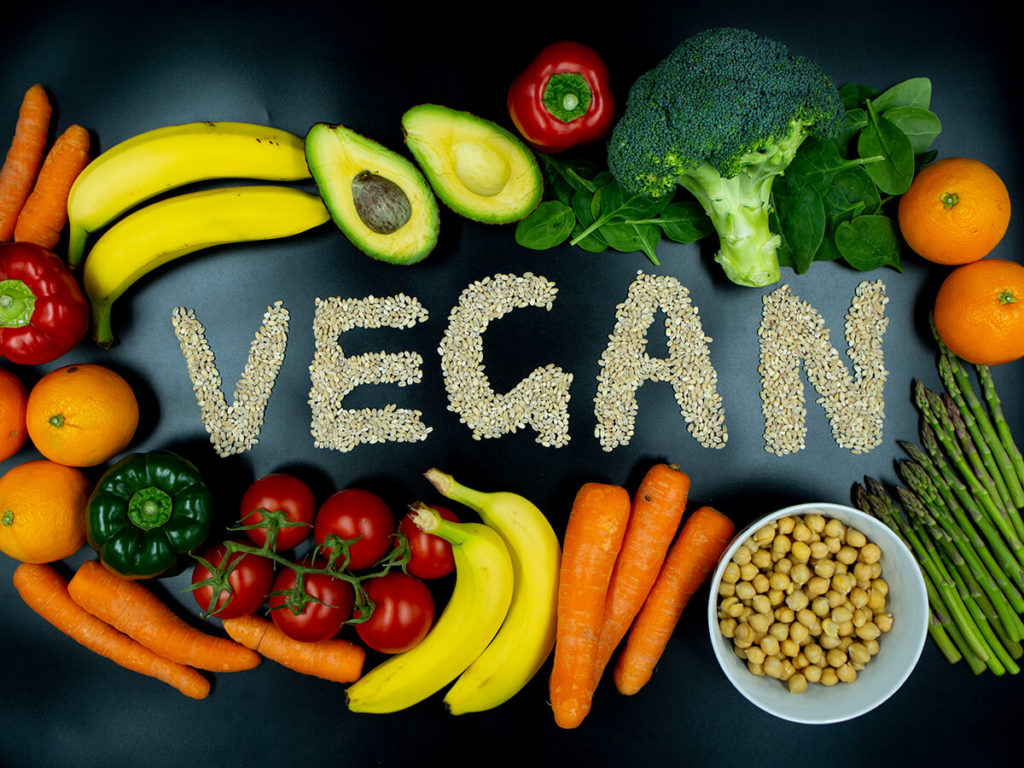Once considered a niche lifestyle, veganism is now a mainstream movement due to growing awareness of its many benefits. A vegan diet based exclusively on plant-based foods and no animal products offers many benefits for human health and the environment. This article examines the benefits of a vegan diet, its positive impact on the environment, the limitations of a vegan diet, and some of the challenges individuals may face on this nutritional journey.
Benefits of a Vegan Diet
1. Improving health and disease prevention:
Numerous studies have shown that a balanced vegan diet can reduce the risk of heart disease, high blood pressure, and cholesterol levels and improve heart health. Abundant fruits, vegetables, nuts, and legumes provide important nutrients, antioxidants, and fiber that contribute to overall well-being and reduce the risk of chronic disease.
2. Weight management:
Vegan diets tend to be low in calories and saturated fat, making them an effective option for weight management. In addition, its high fiber content promotes satiety, regulates appetite, and aids in weight loss and maintenance.
3. Increased energy:
A vegan diet is high in complex carbohydrates to sustain energy levels throughout the day. Plus, plant-based foods are easier to digest, which improves digestion and gives you more energy.
4. An ethical and caring lifestyle:
For most individuals opting for this lifestyle, choosing veganism is consistent with the principles of compassion and respect for all living things. Veganism helps relieve animal suffering and contributes to a more sustainable and humane world.
Environmental Impact
Livestock is a major contributor to greenhouse gas emissions, deforestation, and water pollution. By switching to a vegan diet, individuals can significantly reduce their carbon footprint and contribute to the fight against climate change.
Livestock farming is another aspect that consumes large amounts of water, land, and food resources. By switching to a plant-based diet, you can save valuable resources and support sustainable agriculture. Animal husbandry expansion often leads to deforestation, destroying the habitat of countless wildlife. The adoption of veganism supports biodiversity conservation and protects delicate ecosystems.
Limitations of a Vegan Diet
- Protein source: Although plant-based proteins are plentiful, they do not necessarily provide all essential amino acids. Vegans should combine different protein sources such as legumes, grains, nuts, and seeds to ensure a balanced amino acid profile.
- Vitamin B12 deficiency: Vitamin B12 is a common problem for vegans as it is found mainly in animal products. Dietary supplements or fortified foods are recommended to meet your needs for this important nutrient.
- Iron and Calcium Intake: Plant sources of iron and calcium may be poorly absorbed by the body compared to animal foods. Combining these foods with foods rich in vitamin C improves absorption.
- Omega-3 fatty acids: Flaxseeds and chia seeds provide some omega-3 fatty acids but may not provide enough of the most beneficial form, DHA (docosahexaenoic acid). Vegans may consider a DHA supplement derived from seaweed.
Challenges with a Vegan Diet
a. Social and cultural Pressures:
Adhering to a vegan diet in a predominantly non-vegan society can be challenging, as social gatherings and cultural traditions often revolve around foods of animal origin.
b. Nutrition knowledge:
A well-planned vegan diet requires good nutritional knowledge to ensure that all dietary needs are met. In this regard, it may be helpful to consult a registered dietitian.
c. Availability and accessibility:
Some regions have limited access to various plant-based products and alternatives, making it more difficult for individuals to maintain a balanced vegan diet.
Veganism is a lifestyle choice that combines the benefits of improved health, reduced environmental impact, and compassionate living. Eating a balanced vegan diet can help improve your health and contribute positively to protecting the planet. However, it is important to keep in mind that potential nutritional deficiencies and challenges may arise when transitioning to veganism. With the right knowledge and support, veganism can be a powerful option for a healthier and more sustainable future.
Sweet Slashing: Understanding Sugar Reduction in Dairy Products
Dairy products are loved and consumed by people of all ages worldwide. However, many dairy products are high in sugar, which poses serious health risks. Excessive sugar intake has been associated with a variety of health problems, including obesity, diabetes, and cardiovascular disease. Therefore, there is an urgent need to reduce the sugar content of dairy products. This article discusses sugar reduction challenges, solutions to overcome them, and alternative sweeteners you can use.
Challenges with Cutting Out Sugar
Sugar plays an important role in the taste and texture of dairy products. Eliminating or reducing sugar can significantly impact the overall sensory experience, making it difficult to maintain consumer acceptance. Moreover, sugar acts as a natural preservative and contributes to the microbial stability of dairy products. Reducing sugar increases the risk of spoilage and may shorten the shelf life of these products. Dairy products undergo complex processes such as fermentation, aging, and texture development. Changes in sugar content can affect these processes and pose technical challenges for manufacturers.
Sugar Reduction Solution
One effective approach is to gradually reduce the sugar content of dairy products. This allows consumers to gradually become accustomed to new tastes, increasing acceptance and minimizing the risk of rejection.
Manufacturers can also experiment with reformulation techniques that replace sugar with alternative sweeteners. It’s all about finding the right combination of ingredients to maintain your preferred flavor and texture while reducing the sugar content.
Another viable alternative is to use natural flavor enhancers. Adding ingredients such as vanilla, cinnamon, and citrus extracts can offset any sweetness reduction and enhance the flavor profile of reduced-sugar dairy products.
Alternatives and Substitutes
Stevia: Stevia is extracted from the leaves of the Stevia rebaudiana plant and is a natural zero-calorie sweetener. It’s significantly sweeter than sugar, so less is needed to get the same level of sweetness. Stevia is available in a variety of forms, including powdered extracts and liquid concentrates, making it a versatile sugar-reducing option.
Monk Fruit Extract: Monk fruit extract, also known as monk fruit, is another zero-calorie natural sweetener. It has an intense sweetness and can be combined with other sweeteners to achieve your desired taste. Monk fruit extract is heat stable and can be used in dairy products that require high-temperature processing.
Erythritol: Erythritol is a sugar alcohol found naturally in certain fruits and fermented foods. It has a similar taste and texture to sugar but is lower in calories. Erythritol is known to be resistant to digestion and is suitable for people with diabetes.
Allulose: Allulose is a low-calorie sugar found naturally in small amounts in certain fruits. Similar in taste and texture to sugar, allulose has about 90 fewer calories. Due to its natural browning effect, allulose is suitable for dairy products such as caramel-flavored desserts.
Reducing the sugar content in dairy is an essential step in promoting healthier food choices.
Although there are challenges, gradual reductions, reformulation techniques, and the use of alternative sweeteners can help overcome these obstacles. Stevia, monk fruit extract, erythritol, and allulose are just a few examples of alternative sweeteners that provide sweetness without adding calories. By reducing sugar levels and exploring these solutions, manufacturers can develop tastier and healthier dairy products, thereby contributing to overall consumer well-being.


